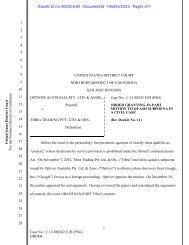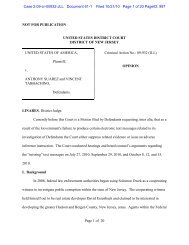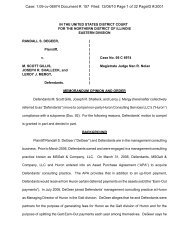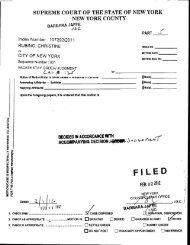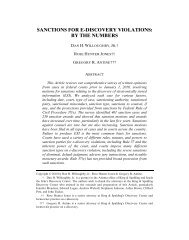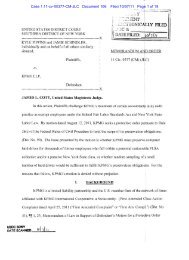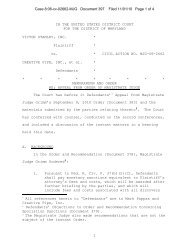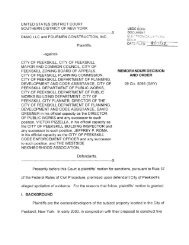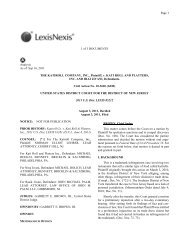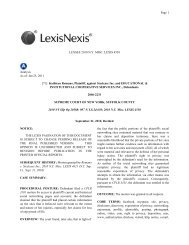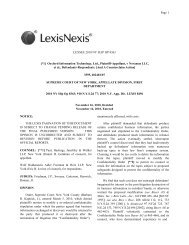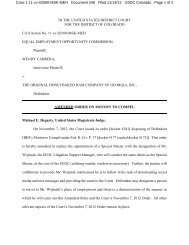Rimkus Consulting Group Inc. v. Cammarata - Ballard Spahr LLP
Rimkus Consulting Group Inc. v. Cammarata - Ballard Spahr LLP
Rimkus Consulting Group Inc. v. Cammarata - Ballard Spahr LLP
Create successful ePaper yourself
Turn your PDF publications into a flip-book with our unique Google optimized e-Paper software.
Case 4:07-cv-00405 Document 450 Filed in TXSD on 02/19/10 Page 67 of 139<br />
noncompetition and nonsolicitation clauses were unenforceable so that they could operate<br />
U.S. Forensic to compete with <strong>Rimkus</strong>. It was reasonable for Bell and <strong>Cammarata</strong> to<br />
anticipate that <strong>Rimkus</strong> would seek to enforce those contractual provisions as to all the U.S.<br />
Forensic employees who left <strong>Rimkus</strong>, as well as the contractual and common-law duty not<br />
to disclose <strong>Rimkus</strong>’s confidential and proprietary information. Emails and attachments and<br />
other documents relating to U.S. Forensic and its related company, to soliciting <strong>Rimkus</strong><br />
clients or employees, and to obtaining or using <strong>Rimkus</strong> information were subject to a<br />
preservation obligation. Such records were relevant to the claims involved in the Louisiana<br />
state court action that <strong>Cammarata</strong>, Bell, and DeHarde filed and to the reasonably anticipated<br />
claims that <strong>Rimkus</strong> would file, and involved the key players in the parties’ litigation.<br />
Rule 37(e), which precludes sanctions if the loss of the information arises from the<br />
routine operation of the party’s computer system, operated in good faith, does not apply here.<br />
The evidence in the record shows that the defendants and other U.S. Forensic founders did<br />
not have emails deleted through the routine, good-faith operation of the U.S. Forensic<br />
computer system. DeHarde testified that he, Bell, <strong>Cammarata</strong>, and Janowsky decided on a<br />
“policy” of deleting emails more than two weeks old. Putting aside for the moment other<br />
evidence in the record inconsistent with this testimony, a policy put into place after a duty<br />
to preserve had arisen, that applies almost exclusively to emails subject to that duty to<br />
preserve, is not a routine, good-faith operation of a computer system. Moreover, the<br />
evidence shows that the founders of U.S. Forensic manually and selectively deleted emails,<br />
after the duty to preserve arose. The selective, manual deletions continued well after <strong>Rimkus</strong><br />
67



